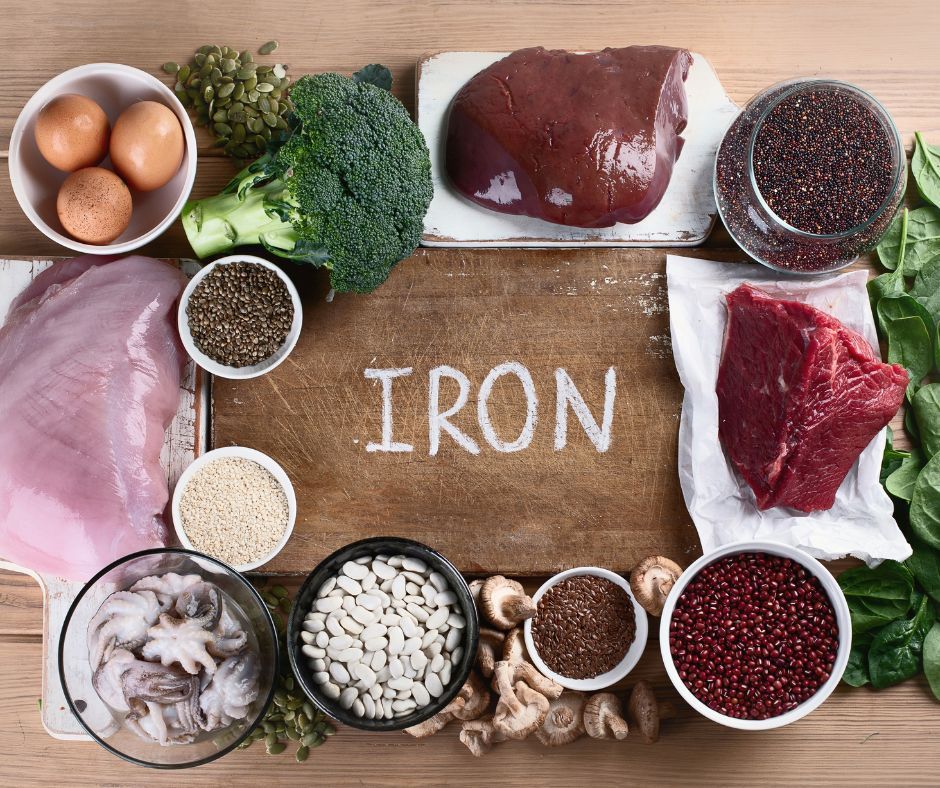How Important Are Micronutrients?
In the modern-day world, we are constantly blasted with often contradicting information about nutrition.

Some people swear by the importance of macronutrients, while others tell us it’s all about the caloric balance.
Now, because fat, protein and carbohydrates are taking the majority of the attention, one thing remains quite ignored…that is namely, the importance of micronutrients, which is the topic of discussion for today! So, without further ado, let us go in depth on micronutrients and discuss what they are, what they do in the body and what the best sources are!
Macro VS Micro
What exactly is the difference between macronutrients and micronutrients?
Well, as the names suggest, macronutrients are the primary nutrients our bodies need in big quantities - Protein, fats and carbohydrates. These nutrients provide caloric value and are needed to sustain a healthy body weight and physiological functioning.
On the other hand, micronutrients do not really have a caloric value, but are just as important, due to their role in a variety of important processes all around the body. Micronutrients include phytochemicals, vitamins, minerals and last but not least, antioxidants! The body needs these nutrients to sustain the production of a variety of enzymes and hormones, which relate to the overall healthy functioning of the organism.
Micronutrient Deficiencies
Though the body needs micronutrients in small amounts, their absence quickly surfaces with a flurry of unwanted side effects.
For example, a magnesium deficiency can cause you to:
- Have bad sleep
- Crave sugar
- Cramp
- Be unable to focus on the task at hand
Vitamins and minerals are an important part of human nutrition, mainly because they help kids grow healthy and strong, while adults can reap the benefits of sustained health.Fortunately enough, micronutrient deficiencies are generally easy to diagnose and can be seamlessly treated with various supplements and foods.
Common Micronutrient Deficiencies
With the abundance of nutrient-poor foods that many people survive on, micronutrient deficiencies are quite a common thing!
Here are the most common micronutrient deficiencies found in humans:
- Vitamin B12
- Iron deficiency
- Iodine
- Magnesium
- Vitamin D
Some of these are easy to diagnose and don’t have much risk, but others can cause severe symptoms and if sustained in the long term, even damage. For instance, B12 deficiencies which are common in vegans and vegetarians, can lead to anemia, memory issues, mood swings, irregular work of the heart and even neurological problems.
Micronutrient-Rich Foods
Unless you have severe deficiencies, micronutrient supplements are not really mandatory, as most deficiencies can be treated with a slight change in nutritional habits.
Let’s have a look at the most vitamin & mineral-abundant foods!
- Fatty fish - Omega-3s, vitamin D
- Citrus fruits - Vitamin C, Folic acid
- Carrots - Vitamin A
- Eggs- Vitamin B, Iron
- Avocados - Vitamins B2, B5, B6 (And tons of healthy fat!)
- Kiwis - Vitamin A, C, E, K, Folate & Choline
Including these foods in your menu regularly will keep you away from deficiencies and maintain a balanced inner chemistry.
Don’t like diversifying your food sources? Shoot for micronutrient supplements! But make sure they are good quality ones!
Take-Home Message
Your best nutrition plan is a good balance between macronutrients, micronutrients and calories. Though micronutrients do not provide a caloric value, they play important roles in a variety of bodily functions. Deficiencies may lead to ill health or undue fatigue, so it is important to get sufficient micronutrition through your food. That’s one of the many reasons it’s so important to eat a range of foods and not cut out any food group!











